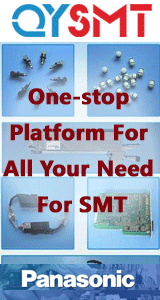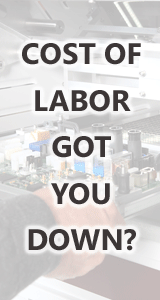Mike, when you ask if companies afford to place additional environmental constraints on the manufacturing process, perhaps we should ask whether they can afford not to pay attention to environmental issues. I know this sounds a little flippant, but in many cases you can make a strong business case for using environmental metrics as part of an efficient business plan. Here are a couple of examples:
Many manufacturers have found that adopting more efficient processes that use fewer, less toxic materials often costs equal or less than current manufacturing methods, but more importantly, saves a business buckets of money in waste disposal and regulatory costs. One really interesting technology that comes to mind are the non-toxic processes recently developed for photoresist removal on semiconductor wafers. The Ozonated water and supercritical CO2 processes that replace the traditional acid-based "piranah etch" systems not only reduces the amount of toxic, expensive chemicals (and the associated disposal costs needed to almost zero, they also cut the amount of rinse water needed by 3 (yes three) orders of magnitude! This drops the water consumption of the average etch/rinse station from around 3-4 million gallons/year to 3-4 thousand gallons a year.
The regulatory climate in Europe and elsewhere will also tend to make it much less expensive to solve environmental issues upstream with good engineering and management - rather than downstream with very expensive disposal costs and fines.
One of the most important issues at the moment is the product take-back laws which was introduced in Germany and will be soon other European countries. Such laws require that manufacturers take back and dispose of whatever products they make (whether it's a toaster, a TV, or an automobile) that cannot be recycled through the public infrastructure. I talked to some people at Compaq a year ago who admitted that their German subsidiary was currently taking back products and simply paying for them to be landfilled. They also said this was a very temporary measure because the cost of landfill or incineration was rising steeply, and there was much value to be mined out of the old computers once they learned how to do it. Since all manufacturers are operating on this same regulatory playing field, the more efficient businesses should be more profitable. This is providing great incentives to companies for turn their current waste stream into a revenue stream.
Even in countries like the U.S., where take-back is several years off (if ever), companies like IBM, HP, and Xerox are realizing significant revenues from their product take-back programs. They are reconditioning and re-selling assemblies and even whole products, as well as providing a low-cost source of spare parts for their field service operations. To be truthful they also admit that they are still struggling with the economics of reclaiming the metal and plastics they salvage from their products, but are making some significant advances in this area. At the risk of sounding like shameless self promotion, I'd advise you to take a look at my book for more details.
reply »
![]() Can companies afford to place additional environmental cons...
- Jun 22, 2000
by
Mike
Can companies afford to place additional environmental cons...
- Jun 22, 2000
by
Mike
![]()
![]()
![]()
![]() Mike, when you ask if companies afford t...
- Jun 22, 2000
by
Lee
Mike, when you ask if companies afford t...
- Jun 22, 2000
by
Lee
![]()
![]()







